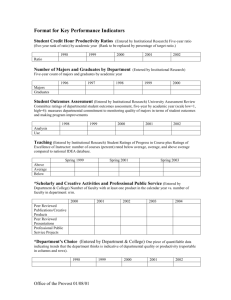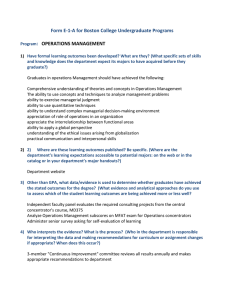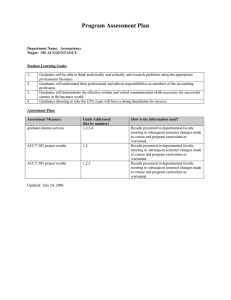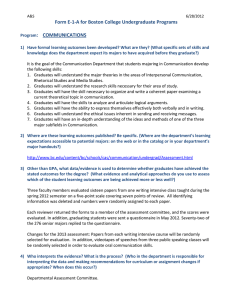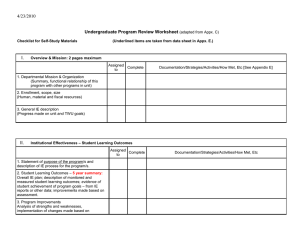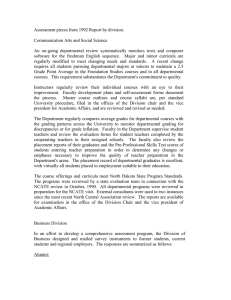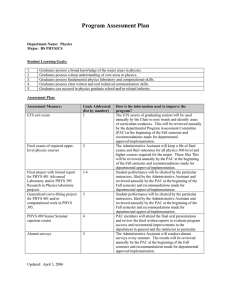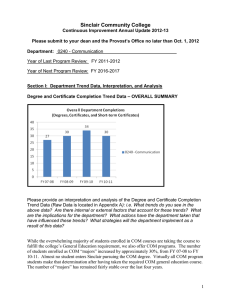Form E-1-A for Boston College Undergraduate Programs Program
advertisement
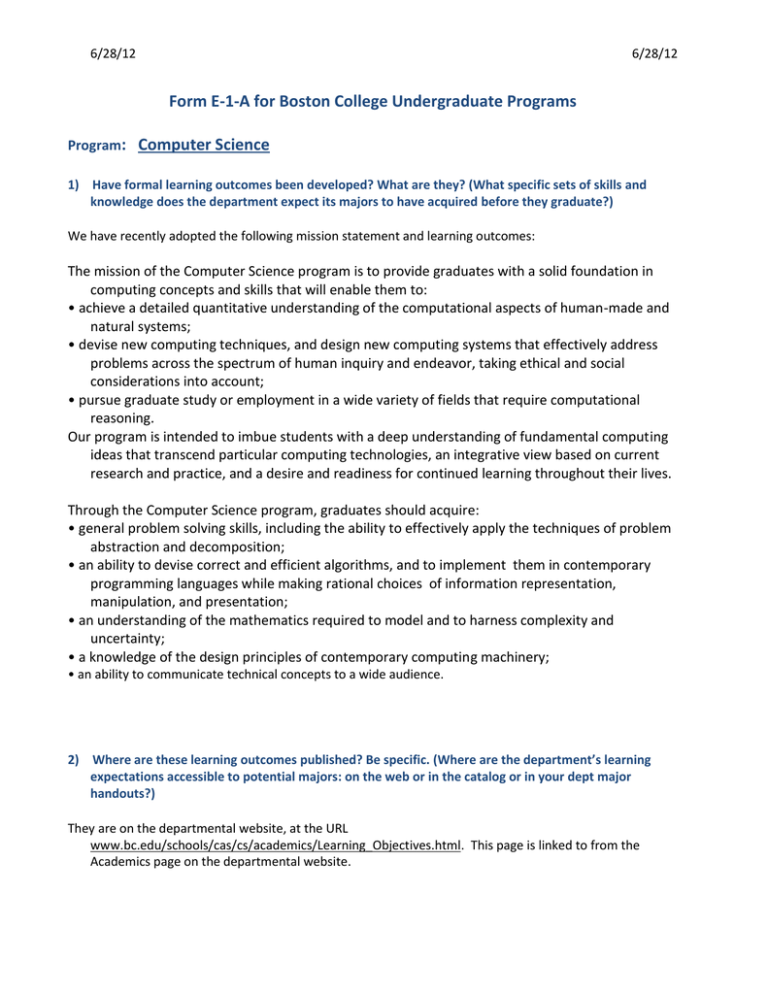
6/28/12 6/28/12 Form E-1-A for Boston College Undergraduate Programs Program: Computer Science 1) Have formal learning outcomes been developed? What are they? (What specific sets of skills and knowledge does the department expect its majors to have acquired before they graduate?) We have recently adopted the following mission statement and learning outcomes: The mission of the Computer Science program is to provide graduates with a solid foundation in computing concepts and skills that will enable them to: • achieve a detailed quantitative understanding of the computational aspects of human-made and natural systems; • devise new computing techniques, and design new computing systems that effectively address problems across the spectrum of human inquiry and endeavor, taking ethical and social considerations into account; • pursue graduate study or employment in a wide variety of fields that require computational reasoning. Our program is intended to imbue students with a deep understanding of fundamental computing ideas that transcend particular computing technologies, an integrative view based on current research and practice, and a desire and readiness for continued learning throughout their lives. Through the Computer Science program, graduates should acquire: • general problem solving skills, including the ability to effectively apply the techniques of problem abstraction and decomposition; • an ability to devise correct and efficient algorithms, and to implement them in contemporary programming languages while making rational choices of information representation, manipulation, and presentation; • an understanding of the mathematics required to model and to harness complexity and uncertainty; • a knowledge of the design principles of contemporary computing machinery; • an ability to communicate technical concepts to a wide audience. 2) Where are these learning outcomes published? Be specific. (Where are the department’s learning expectations accessible to potential majors: on the web or in the catalog or in your dept major handouts?) They are on the departmental website, at the URL www.bc.edu/schools/cas/cs/academics/Learning_Objectives.html. This page is linked to from the Academics page on the departmental website. 6/28/12 6/28/12 3) Other than GPA, what data/evidence is used to determine whether graduates have achieved the stated outcomes for the degree? (What do you use to assess which of the student learning outcomes are being achieved more or less well?) We look at independent research projects. For each student, the faculty advisor discusses the student’s ability vis-à-vis the learning outcomes. In the case of honors theses, we also examine the thesis document and oral presentation. We solicit anecdotal evidence from faculty who teach advanced courses concerning deficiencies in preparation. We have a “town meeting” of seniors at the end of each year. We solicit their opinions about the good and bad aspects of their experiences in the major. We also ask what things they didn’t learn that they wish they did. 4) Who interprets the evidence? What is the process? (Who in the department is responsible for interpreting the data and making recommendations for curriculum or assignment changes if appropriate?) There is a departmental faculty meeting at the end of each academic year, specifically devoted to assessment. We have a small department (8 faculty), and so a plenary meeting is viable and makes the most sense.
